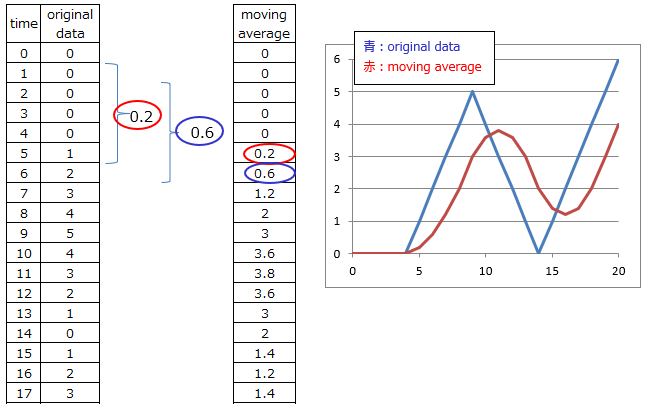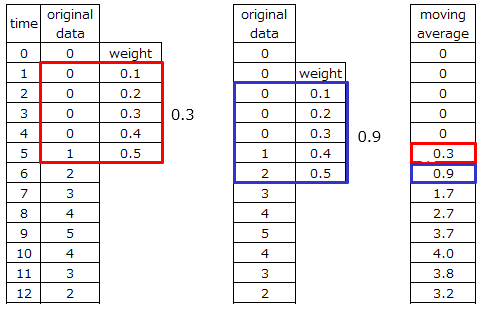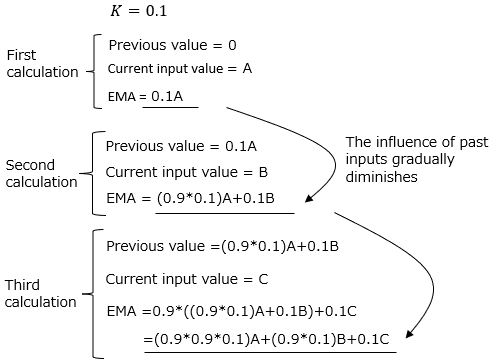Weighted average, (Exponential) moving average |
|||||||||||
standard deviation
|
・In Japanese
■Weighted average
Weighted averaging is the process of adding weight to the data to be averaged. For example, an exam might be weighted according to its importance, doubled for mathematics, and halved for history.
■Simple moving average
Simple Moving Average (SMA) is an averaging process when the target to be averaged changes in time series.
By averaging only the most recent data, you can know the trend of the data.
Specific examples are shown below. It is a moving average of 5 data. ■Weighted moving average
Weighted Moving Average (WMA) is an average process that weights the simple moving average process. It is often the case that the weights of values that are chronologically older are decreased. ■Exponential moving average
Exponential Moving Average (EMA) is an averaging process that exponentially changes the weight of the weighted moving average.
Since the weighted moving average weights the data within the defined interval, the weight of the data outside the interval becomes 0, and the influence of the data disappears suddenly.
On the other hand, the exponential moving average does not abruptly reduce the influence of past data to 0, but gradually reduces it exponentially.
|
|
|||||||||





